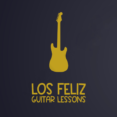Five Ways to Supercharge Your Practice
It’s seems to be a fairly common bump-in-the-road that musicians encounter; you’re still picking up the guitar and playing but you have this sneaking feeling that you’re not getting anywhere, not progressing and feeling sort of, well… bored.
I’ve yet to meet another human that actually claims to enjoy the feeling I’ve just described so we’re going to proceed under the assumption that boredom in practicing should be eliminated with a quick fast. It’s with this idea that I offer these suggestions that have helped me immensely through the years.

1) Record Your Practicing (part 1)
I originally got this idea for practicing from the inimitable Wayne Krantz and then further boiled the concept down to this: set yourself up with whatever you need in order to play the guitar then get a time source (could be a metronome, looper pedal, drum machine or loops from your computer) and some means to record what you’re about to play. Then select a tempo, press record and play whatever you have decided to work on at the given moment. It could be a lick, a song, a chord progression, an entire solo, a free improvisation, playing over changes… it can be anything you like!
After you finish playing your example, go ahead listen back to what you recorded and then ask yourself The Golden Question; “Is that as good as anything I’ve ever heard?”
And of course the answer is almost always some version of “No”, which is good, because it then begs us to ask Golden Question #2, which is…
“Well, then why not?” Yes! Now we’re cooking with gas!
The answers you provide to this question should immediately send you into detective mode. It becomes like a game to figure out just why your playing isn’t yet as awesome as you would like it to be. As long as you aren’t mentally lazy at this step you’ll get all sorts of things to add to your practicing. You might realize that your time sucks. Or maybe the accents in your lines aren’t where you thought they should be. Maybe you can play those chords in time but they just don’t sound as punchy as you thought they should. Or maybe your vibrato is weak. Maybe your tone stinks. Maybe you have technical problems that prevent you from playing things up to speed. Maybe you screw up that third lick in your solo every time you play it…
The issues can be all over the place but the prescription for fixing them is always the same; figure out what the problem is then record yourself again only this time you’re working to fix a known problem.
Listen back now; did it get better? Yes? Great! Do it again and polish it even more. Did it not get better? No? Well, why not? Break it down, play it slower, pay attention to your body. Is tension getting in the way? If you employ this strategy alone it can keep you engaged and progressing in music for life!
2) Book a Gig with New Music
If you are stuck in a rut we can pretty much guarantee that it’s because you’ve been doing the same stuff with your practicing repeatedly and no longer find it mentally or emotionally stimulating. You could always decide to work on a new tune or transcribe that new lick but sometimes even that isn’t enough to ramp up your enthusiasm. A great solution for this is to either start a new band project, set up a jam with some friends or audition for some new group where the repertoire is unfamiliar. If you do this you are in effect compounding your sources for growth. You’re going to be required to learn new music (which is stimulating), you will be playing with other people and won’t want to sound bad in front of them (which is motivating) and you will possibly be performing this music in front of real audiences which adds even more positive pressure (called eustress).
Sure, it’s more work than sitting at your computer and noodling over backing tracks but what do you want to do with your life anyway? You want to progress and play the freakin’ guitar with real people in front of real audiences and have a blast doing it, right?
3) Quit Doing the Same Crap Over and Over
If you and I get together every day and talk about the same topics over and over they will eventually lose whatever luster they may have had originally- it’s just the way things go (law of diminishing returns). You will get bored with me and I’ll get tired of you and we’ll both start to dread our interactions. It’s no wonder that our daily conversations with our instruments are subject to the same laws yet some people pick up their axes and default to playing the same few songs, the same half-baked solos, noodle to the same loops and then begin to wonder why they just aren’t as “into it” as they used to be.
Many of these cases can found on various guitar gear related forums where they vainly attempt to cure the problem by buying more crap- but that’s another topic for another day…
Sometimes you just need to drop what you have been doing and break out the new. Stop doing what comes easy, pick some brand new stuff to practice and then dig in. When you’re fighting boredom sometimes the best strategy is to go far away from what you were doing previously even if just to gain some distance. If you’ve been listlessly playing alternate picking drills for months on end, knock that crap off and go learn how to play some classical guitar etudes. If you’ve been playing nothing but electric blues tunes for years it won’t hurt you to go check out how to play some modern pop songs with some chord melody. Shake it up, pick up a new method book and actually use it. All that boring stuff will still be there for your practicing down the road should you decided to return.
4) Use the “Full-Meal-Deal” Method
I love this one because it’s all about utilizing my own personal philosophy of getting the most out of the least. Often guitarists get caught up in breaking their practicing down into these disparate little pieces that never seem to coalesce into a big, desired whole. You work on your left hand technique with drills and then you do sight-reading. Do they ever go together? Or you pull chord voicings out of a book and then never bridge the gap between memorizing the chord shapes and actually figuring out how to use them in the music you actually play. You learn a solo but you never extract ideas and licks during practicing to use in your own playing.
The full-meal-deal method is where you pick a song (preferably a pop song or jazz standard- metal tunes tend to be too lick specific for this approach) and do all of your work with THAT song. We are going to learn the song by ear (ear training). We are going to write a chart for it (writing music) with both the chords and the melody notated. We are going to learn how to play the melody and we are going to learn the parts of each instrument (understanding arrangements) and then arrange it so you can play it as a solo guitar piece (general guitar performance). Then we’ll also record it and learn how to improvise linear solos over the song (applying all of that lead vocabulary you’ve been stockpiling).
The main idea here is that we are applying all of our practicing resources on one piece of real music that other humans might actually like to listen to you play. Do this for a handful of tunes and not only will your overall musicianship skyrocket but you will also be building a repertoire of tunes that you can call upon when “civilians” ask you to play something for them. Winning!
5) The “Virtual Gig” (or recording your practicing Part 2)
Nabbed this idea from the stupefyingly awesome Tim Miller and the idea is this: after you’ve worked up a repertoire of songs that you can play all the way through, you are going to create a performance situation for yourself in your own home while you’re practicing. You can use your phone to shoot video (anything will work that can capture your performance). You then set up a Spotify playlist for your “virtual set” and then record yourself playing all the tunes straight through just like you would on a gig. No stopping if you mess up- treat it like you would a real performance. What you’ll have afterward is as accurate a record as possible of how you might sound on a gig without doing a real gig. Now take this recording and you use the principles as described in method #1. Did your performance sound as good as anything you’ve ever heard before? Well, of course not! Well, why not? And the cycle begins again…
As I mentioned, I have used and will continue to use these ideas in my own practicing to great effect. There are many more strategies we could list and talk about but I invite you to use your own noggin to come up with some of your own. When you boil it all down, you really want to be in control of manufacturing your own excitement and enthusiasm. If you can become aware of your own behaviors that lead you to temporary ruts, you can also use your own creativity to get yourself out of them which can be a pretty valuable skill set to have, not only in music but in life.
If you’d like to learn more about practicing and schedule a free half-hour consult with me, head on over here and send me an email or text! Thanks!

